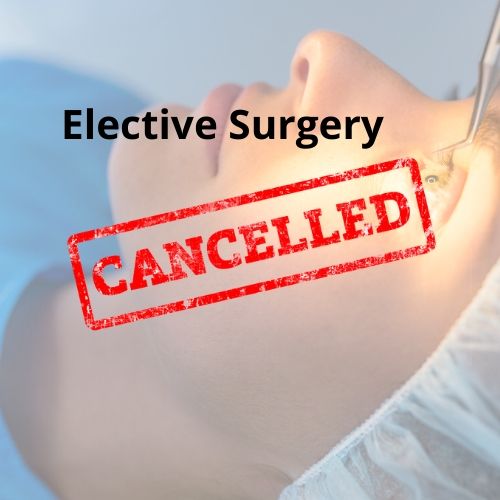Cataract Surgery to be Cancelled


Due to the recent COVID-19 pandemic, the American Academy of Ophthalmology (AAO.org) is recommending that eye doctors immediately cease routine eye care and limit their practice to either urgent or emergent eyecare.
For most ophthalmology practices, this means that patients who have appointments for glasses or contacts may need to reschedule their appointments. Please check with your own eye doctor as to how they are defining “routine” vs. emergent or urgent.
Elective Surgery Cancelled
In addition, the American Hospital Association and the U.S. Centers for Disease Control and Prevention have recommended that hospitals postpone elective and non-urgent procedures. New York Mayor de Blasio may sign an executive order canceling all elective surgeries statewide.
This is likely to happen state by state or region to region.
Examples of elective surgeries are joint replacements, cosmetic surgery…and cataract surgery.
For eye doctors, as an example, this means that many cataract surgeries will be delayed, but emergencies such as retinal detachments can proceed.
Again, if you have surgery of any kind scheduled in the next few weeks, confirm this appointment with your own doctor.
Flattening the Curve
By limiting the types of appointments we see in the office, we are cutting down on the traffic through our offices, thereby protecting our patients, staff and our selves by decreasing our exposure. It’s a compromise to shutting our doors and not offering any healthcare.
By postponing elective procedures, we are attempting to preserve our available healthcare resources by saving as many hospital beds and workers for the care of potential coronavirus patients. Secondarily, as with limiting office visits, the recommendations also limit the potential exposure of healthy individuals to the virus.
There will be other non-Coronavirus patients who will need care during this pandemic. Cancellation of elective procedures also frees up supplies and manpower for patients who need cancer treatments, emergency surgery and other emergencies such as heart attacks and strokes.
In the next few weeks, your own doctors’ offices will develop a plan to contact you about your healthcare. Stay in contact with them.
